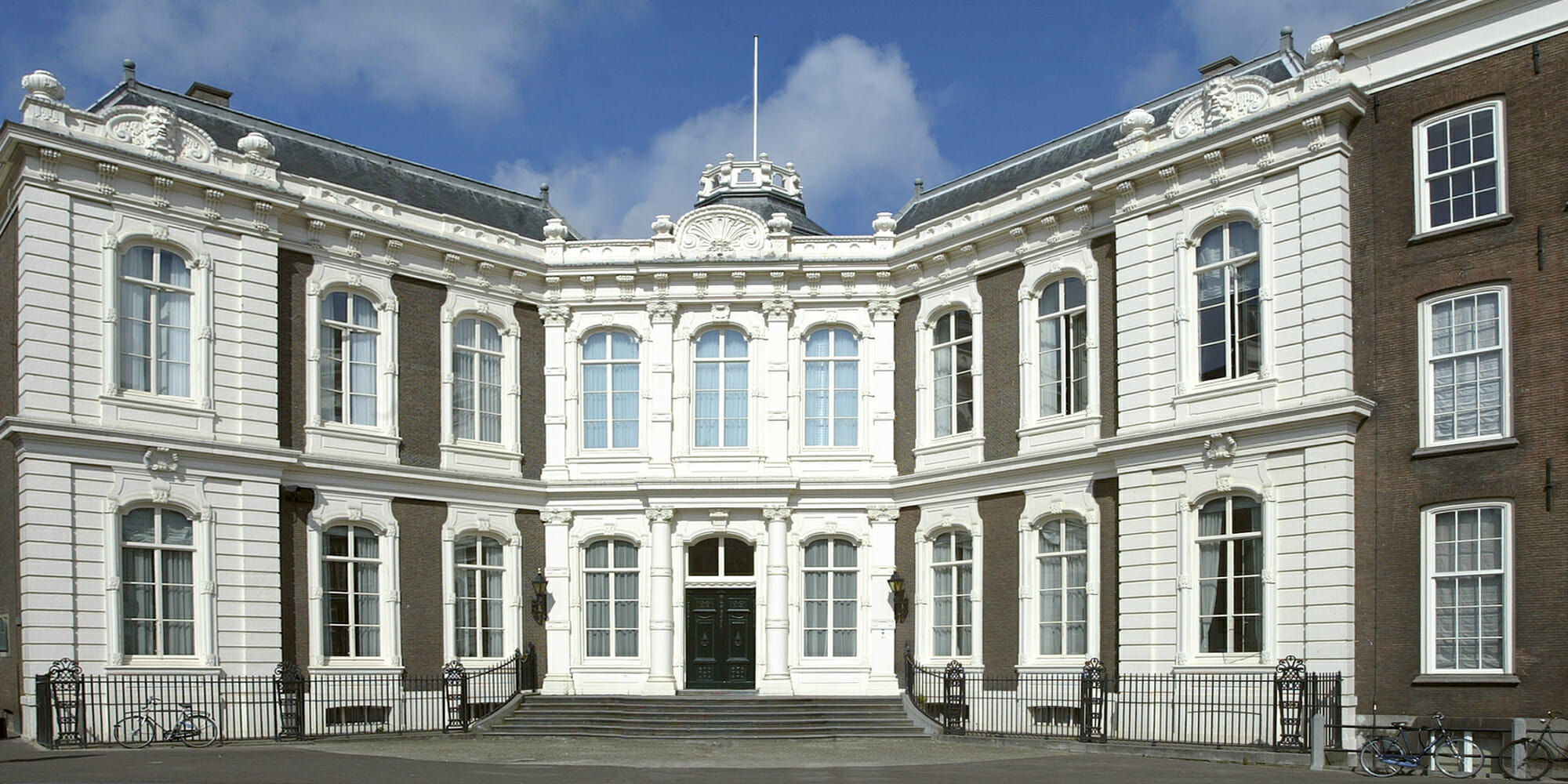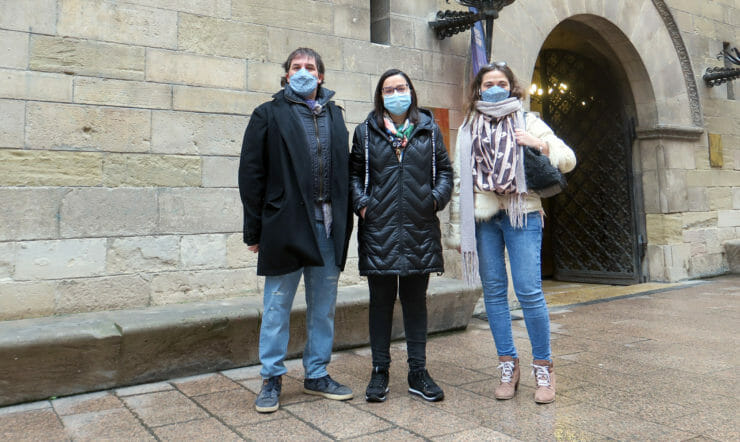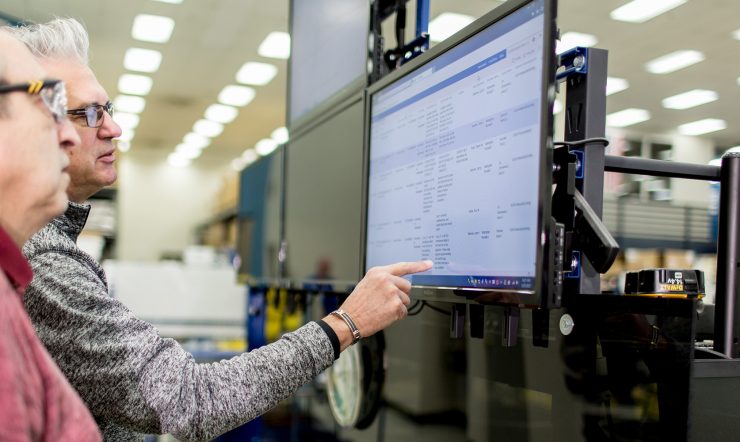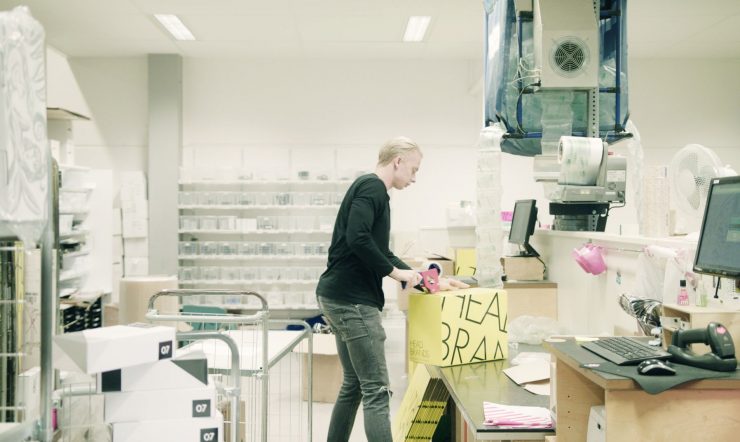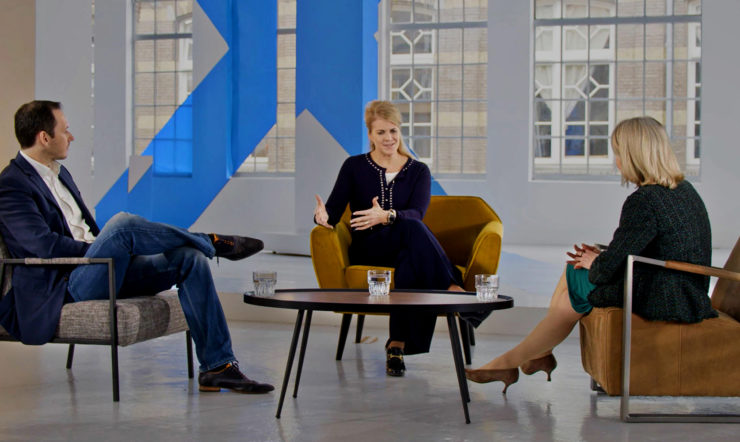“This situation has proven that with the right means, support and trust, you can remove half of the desks in your building – and in that sense, I don’t think we’ll ever see 700 people at the same time in the office again.”
Ron Lamers, Project Manager at Raad van State, is talking about the acceleration of technology during COVID-19 and how a remote-working solution has changed his organization forever.
“The Council of State is one of the oldest governmental organizations in the Netherlands and has two primary tasks – advising the government and Parliament on legislation and governance, and serving as the country’s highest general administrative court,” explains Lamers.
“These are highly intelligent people who prefer the traditional way of working – lawyers and judges speaking face to face, and that’s something nobody felt technology could replace.
“At least that was their opinion before COVID-19.”
A traditional public sector organization
Raad van State is the Netherland’s Council of State – a constitutionally established advisory body to the government that includes members of the royal family and crown-appointed members with a political, diplomatic or military background.
The council employs around 700 people, mainly lawyers or judges with around 40% administrative staff such as IT and registrars. With a small IT landscape made up of a few legacy systems, Raad van State had always discouraged employees from working remotely. But once COVID-19 restrictions prevented people coming into the office, the council needed to make some quick decisions to allow everyone to keep working from home – which started by moving to the cloud.
“At some point you need to decide – are we going to invest in our data centers or outsource to a third party?” says Lamers.
“That became the driver for our ‘Reis naar de Cloud’ (Journey to the Cloud) project, which we launched at the start of 2020 to explore the possibilities of Azure and Windows Virtual Desktop.”
400 remote-workers in a matter of weeks
Raad van State had first experimented with Azure as part of a small trial in 2017, to create an application to help lawyers file appeals online. But security concerns over cloud data prevented the council from doing anything further with the platform. It wasn’t until they announced their new cloud vision for 2020 that Azure was properly reviewed again under the ‘Reis naar de Cloud’ project.
“Pre-COVID-19, we were already looking to move all our applications to the cloud, so we decided to see how Azure and Windows Virtual Desktop could help people work from home too,” explains Lamers.
“Our previous remote-working tool needed up to 15 new servers to support everyone remotely, which would take months to put in place. But Azure gives us the flexibility to scale up much faster in the cloud and add more servers or services as and when we need them.
“With support from Microsoft, we did a proof of concept for around 30 users a week before the Dutch government lockdown,” he says. “Two weeks later that grew to 250 and now our system can handle 400 sessions. It’s a huge improvement and helped us avoid an enormous backlog of cases when COVID-19 hit.”
As well as helping people access their desktop from home, Raad van State needed to guarantee security and data storage – a big priority for the council – which made educating staff a crucial part of this digital transformation.
“No-one is allowed to take a piece of paper outside the building, so you can imagine how moving the whole organization to a virtual world was a big step,” adds Lamers.
“We organized workshops to educate everyone on things like multi-factor authentication and Microsoft Teams. They then had the freedom to configure these new tools to suit their way of working and we could be confident that every chat and video call was secure.”
Creating a remote-working culture
With Windows Virtual Desktop now implemented across Raad van State, the council has been able to continue carrying out its duties in a safe and secure manner. A shift to remote working that Lamers is sure the organization will take into the future.
“A lot of our work can be done from home, but discussing the actual cases still needs to happen in the courtroom,” he says. “The buildings have been adjusted to meet social distancing so a courtroom that could hold 60-80 people now has room for 20. Through Teams, everyone else can join virtually and shown on a big screen so they can still be part of the discussion.”
Lamers adds, “the council never had an audio-visual team, but now they’re a key part of the organization to keep all these cameras, screens and devices running – and in that sense I don’t think we’ll ever go back.”
Since May 2018, the council has also had to consider GDPR rules around personal data, creating hesitation around working with third parties and leaving important client data vulnerable. But after careful and thorough high-level conversations between government and Microsoft officials, Raad van State has been able to migrate their data to the cloud with confidence.
“We’ve built trust with Microsoft and now believe our data is more secure in Azure than it is on-site,” says Lamers.
“Microsoft can spend more money securing their environment and servers than the council, and with all the Microsoft tools we’re using the trust lies much deeper than simply using Azure.”
Understanding the importance of technology
“We’re very proud of what we’ve been able to achieve, and it’s helped change the council’s way of thinking towards technology,” says Lamers, talking about how future projects will be affected by the events this year.
“Without the cooperation with Microsoft, we wouldn’t have been so successful,” he says. “And we’re now looking to roll out new laptops and mobile devices remotely managed through Intune, as well as bring our development and testing environment to Azure.
“Governmental organizations have always been bad at working quickly, and that’s because of regulations they have to go through. But now we all depend on IT – so if we can provide facts to show how a project will add value to the council, we can get faster approvals to move forward.”


